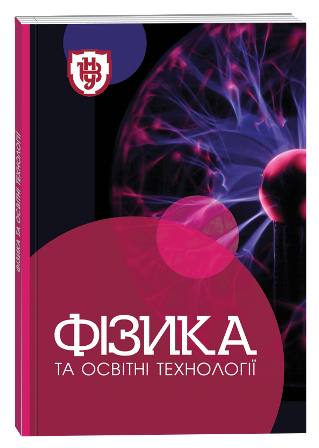MAIN PROBLEMS OF DEVELOPMENT THE COMPUTER SCIENCE AND NECESSITY OF THE APPLICATION OF PHYSICAL PROCESSES
Keywords:
cybernetics, computer science, evolution, hardware, software, polymetrical analysis, PythonAbstract
The problems of evolution the cybernetics and computer science are analysed. Short historical analysis of this problem is represented. It includes Greek abacus and the Peruvian system of nodal counting. The role of Blaise Pascal and Wilhelm Leitzbnitz in establishing the foundations of computer science is noted. The next stage in the development of computer science was the research of Charles Babbage and Lady Ada Lovelace. It was Ada Lovelace, who initiated the programming procedure. The concept of cybernetics as the management of ships originated in Greece. In the 19th century, it was formulated as a science of management by J. Ampere and B. Trentowski. It was completed by N. Wiener, according to whom cybernetics is the science of control in the living and non-living world. Later, cybernetics became the basis of computing. In its bowels, the theory of automatic regulation was expanded and the foundations of modern information theory were formulated. As F. George showed, cybernetics is a synthetic science that includes a number of sciences that are needed to solve the relevant problem. Research has been conducted on the development of the hardware base of modern cybernetics and computer science: from pebbles, nodules and bones to modern optoelectronic systems. Modern computer science has a somewhat broader meaning as defined by N. Wiener. The main task of modern computer science is the formalization of the thesis of the Canadian philosopher L. Hall "Everything that comes from the head is intelligent". In this case, along with the elementary base, programming received significant development. Along with narrow-profile programming languages (Fortran, Pascal), the system programming languages C and cross-hierarchical programming (Python have been created). The structure of computer science has also changed significantly. The further development of computer systems is obviously related to the reduction of time and simplification of the procedure for obtaining the necessary information and including the real physical processes in the procedure of computation. Possible ways of implementing this are also discussed.
References
Computer science. Wilkipedia – the free encyclopedia. URL: http:/en.wikipedia.org/wiki/ Computer_ science.
Computing/ Wilkipedia – the free encyclopedia. URL: http:/en.wikipedia. org / wiki/ Computing.
George F. H. Foundations of cybernetics. Gordon and Breach Science Publishing, London, Paris, New York, 1977, 260.
George F. H. Philosophical Foundations of Cybernetics. Abacus Press, London, 1976, 157.
De Broglie L. Thermodynamique du point isolé. La thermodynamique cachée des particules. Paris: Gauthier Villars, 1964. 98 p.
History of computer science – Wikipedia. URL: https://en.wikipedia.org/wiki/ History_of_computer_science.
Ifrah G. The Universal History of Computing: From the Abacus to the Quantum Computer.New York: John Wiley @ Sons, 2021. 416 p.
Kleene S. C. Introduction to metamathematics. Amsterdam: North Holland, 1965. 550 р.
Koetsier T. On the prehistory of programmable machines: musical automata, looms, calculators. Mechanism and Machine Theory, 2001 Vol. 36, Is. 5, P. 589–603.
Nillson N. I. Artificial Intelligence. A new synthesis. San Francisco: Morgan Kauffman Publishers, Inc., 1998. 514 p.
Nillson N. I. The Quest for Artificial Intelligence: A History of Ideas and Achievements. Cambridge University Press, New York, 2010, 562.
O’Regan G. Introduction to the History of Computing: A Computing History Primer (Undergraduate Topics in Computer Science). Berlin: Springer Verlag, 2016. 317 p.
Rendall B. From Analytical Engine to Electronic Digital Computer: The Contributions of Ludgate, Torres, and Bush. Annals of the History of Computing, Vol. 4, Is. 4, 1982, 20 p.
Trentowski B. The attitude of philosophy to cybernetics, or the art of governing a nation. Poznan, 1843, 196 p.
Trokhimchuck P. P. Mathematical foundations of knowledge. Polymetric approach. 2nd edition Lutsk: Vezha-Druk, 2014, 624 p.
Trokhimchuck P. P. S. Beer centurial problem in cybernetics and methods of its resolution. In: Advanced in computer science, vol. 7, ch. 5. Ed. Mukesh Singla. New Delhi: AkiNik Publications, 2020. P. 87–118.
Trokhimchuck P. P. Theories of Everythings: Past, Present, Future. Saarbrukken: Lambert Academic Publishing, 2021. 260 p.
Trokhimchuck P., Viligurskii O., Zamurueva O. Some questions of synthei in cybernetics and computer science. Applied Problems of Mathematical Modelling. 2022, Vol. 5, Ch.2. P.84–89.
Wolfram S. Metamathematics: Foundations & Physicalization. Leipzig:Wolfram Media, 2022. 456 р.
Замуруєва О. В., Кримусь А. С., Ольхова Н. В. Об’єктно-орієнтоване програмування в Python. Курс лекцій. Частина 1. Луцьк: Вежа-Друк, 2018. 64 с.
Замуруєва О. В., Вілігурський О. М. Об’єктно-орієнтоване програмування в Python. Курс лекцій. Частина 2. Луцьк: Вежа-Друк, 2020. 72 с.







